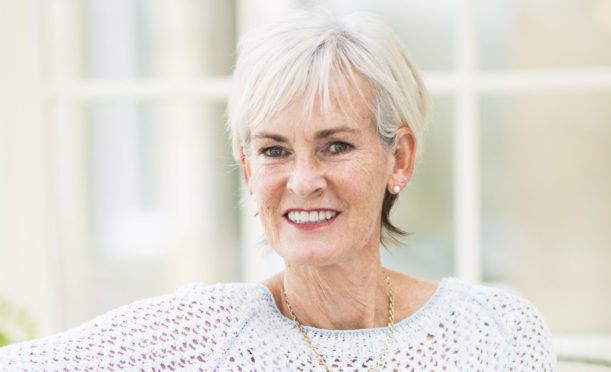
Over the past six months, with life unexpectedly grinding to a halt, I found myself regularly collecting my parents’ dog and heading over to the local park in Dunblane for some much-needed fresh air and exercise – and our walks became a lovely trip down memory lane.
Wandering along the slowly flowing river, past the swings and the paddling pool, I started thinking about all the wonderful memories that revolved around that green space, which has been a part of my life as far back as I can remember. I went there with my parents and brothers or to play with friends when I was a little girl and then, many years later, brought Jamie and Andy to do the same. So, the open grassy picnic areas, football pitches, riverside bays, roundabouts and slides will always have a special place in my heart.
The monkey bars and the witches have gone now, replaced with a more modern climbing frame, but the old magic is still there.
So, why did it take a worldwide pandemic for me to rediscover the quiet, beautiful, natural spot that’s right on my doorstep? I won’t be the only one who realised what they had been missing. For generations, our local parks and gardens have been a vital community space where people from all walks of life can meet, from new mums pushing buggies to pensioners taking a turn around the duck pond, but in recent years we’ve started to take them for granted.
As we’ve become obsessed with our phones, and too busy watching TV or scrolling through social media, our outdoor hubs have sat empty – until Covid-19, and a strict nationwide lockdown, made us all cherish something as simple as a daily walk. At the height of quarantine, popping on our trainers and heading outdoors for just one hour became a lifeline, and our parks were suddenly buzzing with activity again.
And, I believe, holding on to this renewed love for our parks and gardens could be absolutely vital as coronavirus continues to alter our everyday lives.
This crisis isn’t going away any time soon, and as we face a long winter of yet more restrictions, parks have the potential to provide us with free, easily-accessible and – most importantly – safe places to meet friends, family and loved ones. But we’ll need to play our part to ensure these places survive.
Between budget cuts, a lack of investment and littering caused by the selfish few, these areas could easily become forgotten and mistreated, so it’s time we galvanised our communities to come together and make the most of what we have.
Whether it’s picking up crisp packets carelessly thrown in bushes, planting shrubs or even organising a (socially distant) walking group, we can build a sense of community and ownership that will get us through the next six months and beyond. There are so many reasons to celebrate our parks and green spaces, so let’s rally our local authorities to allocate more funding, come together to create new projects, and get outdoors – who knows, this sense of pride in our neighbourhood could be one of the few positives to come out of such a difficult year.

Enjoy the convenience of having The Sunday Post delivered as a digital ePaper straight to your smartphone, tablet or computer.
Subscribe for only £5.49 a month and enjoy all the benefits of the printed paper as a digital replica.
Subscribe